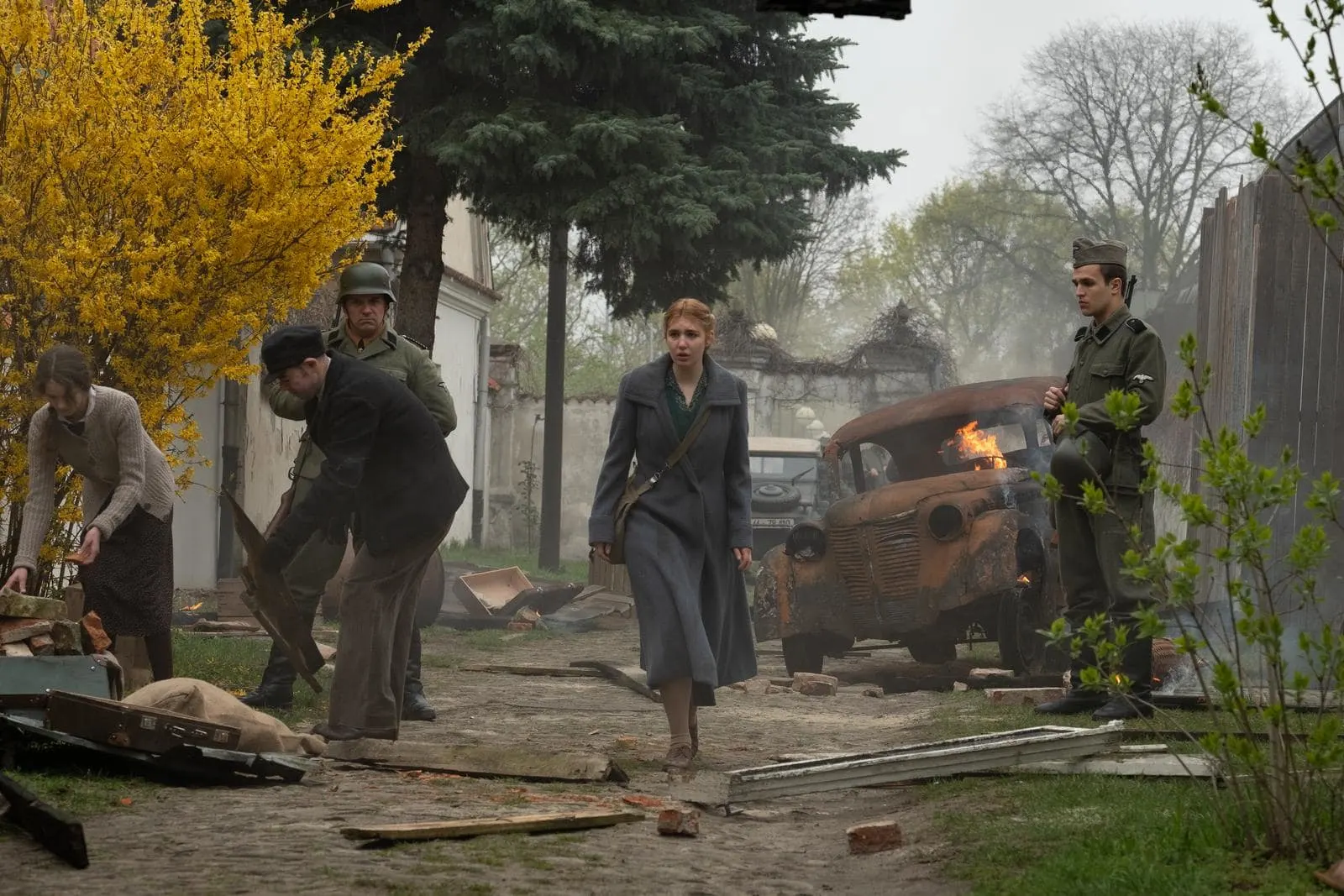"Irena's Vow" is film directed by Louise Archambault, based on the true story of Irena Gut Opdyke, a young Polish woman who saved the lives of several Jews during World War II.
The movie depicts the experiences of Irena, a Catholic woman who worked as a housekeeper for a German officer during the Nazi occupation of Poland. Despite the risks involved, Irena harbored several Jewish refugees in the basement of the officer's house, providing them with food, shelter, and protection from the Nazis.

This is a sponsored post on behalf of Review Wire Media for Quiver Distribution.
As the story unfolds, Irena navigates the complexities of living under German occupation while secretly aiding persecuted Jews. She faces constant danger and must carefully navigate her relationship with Major Rugemer, who remains unaware of her secret activities.

"Irena's Vow" portrays Irena's courageous actions and the moral dilemmas she confronted during a time of extreme adversity. The film highlights themes of resilience, compassion, and the capacity for individual heroism in the face of overwhelming darkness.
The movie serves as a poignant reminder of the Holocaust's horrors and the bravery of those who risked everything to save lives. It captures Irena's remarkable story of sacrifice and human decency amid the atrocities of war.
The movie, filmed in Poland, is a deep and moving film, rated R for strong violence and brief sexuality.

Irena and her network of collaborators smuggled children out of the ghetto, provided them with false identities, and placed them with Polish families or in convents and orphanages to keep them safe.
Irena's courageous actions were driven by a deep commitment to humanity and her belief in the value of every life. She risked her own life to save others, and her story serves as a testament to the power of individual bravery and compassion in the face of great evil.
